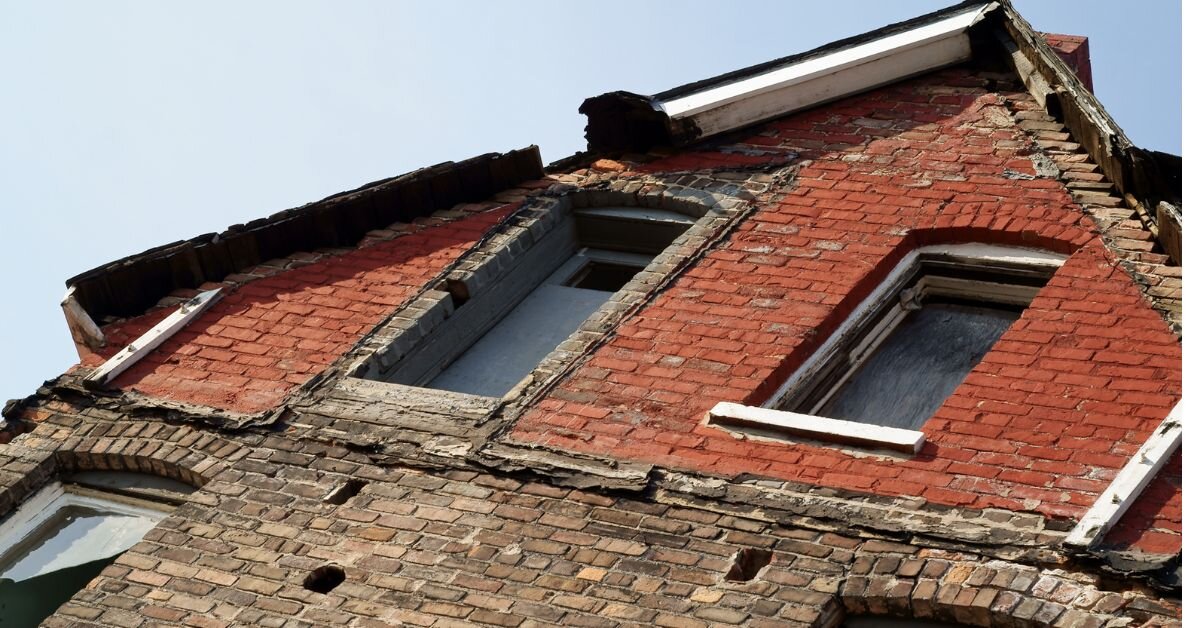
Buying distressed homes can be tricky but rewarding. These properties are usually cheaper but often come with problems that need fixing. For many, they’re an opportunity to own property at a lower cost or invest in something they can fix up and sell later. But if you don’t know what you’re getting into, it could be a financial headache. Let’s dig into the common issues of distressed houses and how buyers can handle them without getting overwhelmed.
What Are Distressed Homes?
When we talk about distressed homes, we’re referring to properties that are either in poor condition, financially problematic, or both. These houses might be under foreclosure, sold in a short sale, or owned by a bank after failing to sell at auction. In some cases, they’ve just been neglected for years. They’re often sold as-is, meaning no repairs or touch-ups will be done by the seller.
For buyers, the appeal lies in their lower price. You can often buy them for much less than similar houses in the same area. But remember, that lower price comes with risks—like structural problems or unpaid taxes. It’s important to know what you’re walking into before committing.
Structural Problems in Distressed Homes
Structural issues are among the most serious concerns in distressed homes. Problems like cracked foundations, sagging walls, and unstable framing can make a property unsafe. These issues often result from neglect, natural disasters, or long-term wear and tear. Buyers must address these problems before moving forward, as repairs can be costly and time-consuming. For sellers, structural issues can deter traditional buyers, but cash buyers often accept these homes as-is, making the process simpler.
1. Foundation and Framing Issues
A cracked foundation or weak framing can make a house unsafe and cost a fortune to fix. This is one of the most common issues of distressed houses. Problems like this often happen in older homes or properties that haven’t been maintained well. Water damage, earthquakes, or even poor construction can cause these issues.
How to Handle It:
Hire a professional to inspect the home’s foundation before buying. If repairs are needed, get estimates. Foundation fixes can range from $5,000 to $50,000. If you’re selling, cash buyers often purchase homes with these problems, saving you the trouble of dealing with expensive repairs.
2. Roof Damage
Leaky roofs are a headache. And with distressed homes, it’s pretty common. Sometimes the leaks are minor, but they could lead to bigger problems like mold or rotting wood if ignored. Other times, the entire roof might need replacing.
How to Handle It:
Check for water stains on ceilings or walls when inspecting the home. If you’re buying, factor in the cost of a new roof, which can run between $5,000 and $15,000. Selling? Cash buyers usually account for roof damage in their offers and take care of the repairs after the sale.
Outdated Systems and Interiors
Distressed homes often feature outdated systems like old plumbing, faulty electrical wiring, and aging appliances. Additionally, interiors might have worn-out fixtures, peeling paint, or outdated designs. These issues make the home less appealing to buyers but present an opportunity for renovation and modernization. While some buyers see these as deal-breakers, others may view them as a chance to create a customized space. Sellers can attract cash buyers who handle such updates themselves, saving time and effort.
3. Plumbing and Electrical Problems

Outdated plumbing or bad wiring is another thing buyers and sellers need to watch for. These issues aren’t just inconvenient—they can be dangerous, especially if they lead to fires or flooding. Many distressed homes have systems that are decades old and don’t meet current safety standards.
How to Handle It:
Get a full inspection to identify any problems. Replacing old pipes or electrical systems can be pricey but necessary. For sellers, these issues can scare off traditional buyers, but cash buyers typically purchase as-is, even if major updates are needed.
4. Old Kitchens and Bathrooms
Kitchens and bathrooms are two of the most expensive areas to remodel, and many distressed homes haven’t seen updates in decades. Worn cabinets, broken fixtures, and outdated designs can turn buyers off, but they also represent an opportunity for those willing to put in the work.
How to Handle It:
Decide if you’re willing to invest in renovations. For buyers, upgrading these spaces can increase the property’s value significantly. Sellers can attract buyers by pricing the property competitively and leaving the remodeling decisions to them.
Environmental and Pest Problems
Water damage, mold, and pest infestations are common in distressed homes. These issues can compromise the property’s value and pose health risks. Mold from leaks and termite damage to wood structures are particularly concerning. Buyers should budget for inspections and remediation to address these hazards. Sellers often struggle to fix these problems, but cash buyers typically purchase properties as-is, relieving the seller of repair responsibilities and ensuring a straightforward transaction.
5. Mold and Water Damage
Water damage and mold go hand in hand. It’s not uncommon to find mold growing in the walls, ceilings, or basement of distressed homes. It’s ugly, unhealthy, and sometimes expensive to get rid of.
How to Handle It:
If you’re buying, budget for mold remediation. It can cost anywhere from $500 to $6,000, depending on how bad it is. Sellers, on the other hand, might want to disclose any known mold issues upfront to avoid legal trouble later.
6. Termite Damage

Termites can quietly destroy a home’s structure. By the time you notice the damage, it’s often too late. In Such Homes, termite problems can be extensive, especially if the property has been neglected for a long time.
How to Handle It:
Get a termite inspection before making an offer. If you’re selling, cash buyers often deal with pest problems themselves, meaning you don’t have to.
Financial Challenges
Financial difficulties often accompany distressed homes. Properties may have unpaid taxes, liens, or be in the process of foreclosure. These issues can complicate the sale, delaying closing or increasing costs for buyers. It’s essential to conduct thorough title searches and work with professionals to resolve these obstacles. For sellers, cash buyers offer a way to bypass these challenges by purchasing properties quickly and assuming responsibility for any financial complications.
7. Title Issues
Some properties come with financial complications, like unpaid property taxes or liens. These issues can delay the buying process or even lead to legal troubles if they aren’t resolved.
How to Handle It:
Before buying, make sure to do a title search. Sellers should consider working with professionals who can clear these issues before listing the property.
8. Slow Closing Processes
Short sales and foreclosures can drag on for months. If you’re in a hurry to buy or sell, this can be a major downside of distressed homes.
How to Handle It:
Cash buyers are a great solution here. They often close deals within days, avoiding the drawn-out timelines of traditional real estate transactions.
Why Cash Buyers Are the Right Solution
Cash buyers simplify the process of buying or selling distressed homes. They purchase properties as-is, handle repairs themselves, and close quickly. For sellers, this means no repairs, no staging, and no waiting for the right buyer to come along. For buyers, it’s a chance to secure a home without the usual hassles of financing.
The Bottom Line
Distressed homes may have their fair share of issues, but they also come with unique opportunities. Whether you’re buying a home to fix and flip, investing in rental properties, or selling a house that’s seen better days, understanding these challenges can help you make informed decisions. And with cash buyers We Buy Houses Countywide, you can avoid many of the headaches associated with traditional real estate transactions.
FAQs
Q1: What are distressed homes?
They’re properties in poor condition or under financial strain, often sold as-is.
Q2: Are distressed homes cheaper?
Yes, they’re usually sold below market value, but buyers should budget for repairs.
Q3: How do I find distressed homes?
Look for foreclosure listings, REO properties, or work with a real estate agent experienced in distressed sales.
Q4: Can I sell a distressed home without repairs?
Absolutely. Cash buyers often purchase distressed properties as-is, saving sellers the cost of repairs.
Q5: What’s the biggest risk in buying a distressed home?
Hidden repair costs or title issues can create problems. Always do your due diligence with inspections and title searches.

Kevin J Roberts
Licensed Real Estate Broker & Investor
Kevin Roberts is a seasoned real estate expert with 40+ years of experience, excelling
in property investments, sales, and client satisfaction in the State of California.

